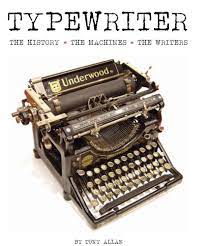I don’t like publishing at ALL and I think there’s room for a total revamp. Thing is, getting product to customer. This requires defining product. As cited in Being Digital by Nicholas Negroponte, it’s a matter of atoms versus electrons.
Physical versus digital, with books the best example.
Physical books have the advantage of being self-contained and much harder to reproduce by pirates. It simply costs too much to bother copying and printing phony editions which must then be shipped or smuggled, slipped into the market covertly, and so on.
They also take up space, require handling, shipping, storage, and eventually disposal. All at risk of prison for pirates.
Electronic books and other products have none of those disadvantages, but they’re easy to reproduce at virtually no cost, so controlling intellectual property becomes impossible.
We’re seeing electronic supersede atomic items, books in particular but also music and movies. Streaming services are booming, theaters are dying. It isn’t just Covid-19, it’s facing up to a reality in which printing, shipping, storing, handling, and showing movies in theaters is becoming harder to sustain financially. Along comes increasingly bigger TV screens, home entertainment systems, quadrophonic sound systems, rear-projection screens, and theater seat recliners any “middle class” income can afford.
Drive-in theaters linger in dwindling numbers but they’re dinosaurs. Movie theaters are lumbering toward the same fate. A few art house theaters showing old physical movies on reels will continue, sure, but the mass-market theater is on the way out.
As with music, from 78s, to LPs, to cassette tapes, to CDs … to downloading digital product. Electrons win, hands down, and in the process made virtually all music free for anyone to hear when and how they wish. Making money selling recordings is barely a thing anymore. Release music, it’s a free-for-all instantly.
Now eBooks are going the way of music, meaning no creators will be able to make a living, everyone wants to download them free, and there’s no respect for, or ability to discern, good from shit writing.
Not to mention the complete disregard of intellectual property, which we saw begin to decay when sampling became common, and DRM proved ridiculous. It is not possible to control a digital item once it’s released to the public.
Pirating and plagiarism is standard now, even with big names, in music and in literature. Soon movies will succumb, too, as better programs are released to allow home editing, switching of characters, and reviving of long-gone actors, voices, and even set decorations.
Putting words in line to form well-expressed thoughts, to communicate clearly the thinking of one person to others, is now affected by Otto, the automatic “correction” of spelling and grammar, which as often as not reduces things to a lowest common denominator parade of howlers and idiocies. It’s also affected by the artificial popularity and ease of access to audience, the instant feedback of trolls and flame wars and comments, and let’s not forget it’s affected by the fat part of the Bell Curve, too, where we find plot-point readers, disregard for quality prose, and an infantile grasp of subtlety. Anti-intellectualism holds sway online, so publish at a third-grade level or lower, if you want any kind of readership.
Sounds grim, a death-knell being rung, if not a neck being wrung by the strangling of populism. Standards are sneered at, goals torn down, and past accomplishments mocked instead of emulated. Coarse, crass, and cheap is what’s wanted, and more of it fast.
I don’t like publishing at ALL and I think there’s room for a total revamp. Thing is, how are we going to go about sustaining writers and artists while maintaining a new marketplace that won’t pay and doesn’t care who does what?
Look up “samizdat” and, psst — here’s a ms. Pass it on.


